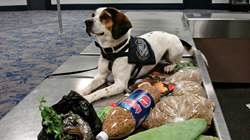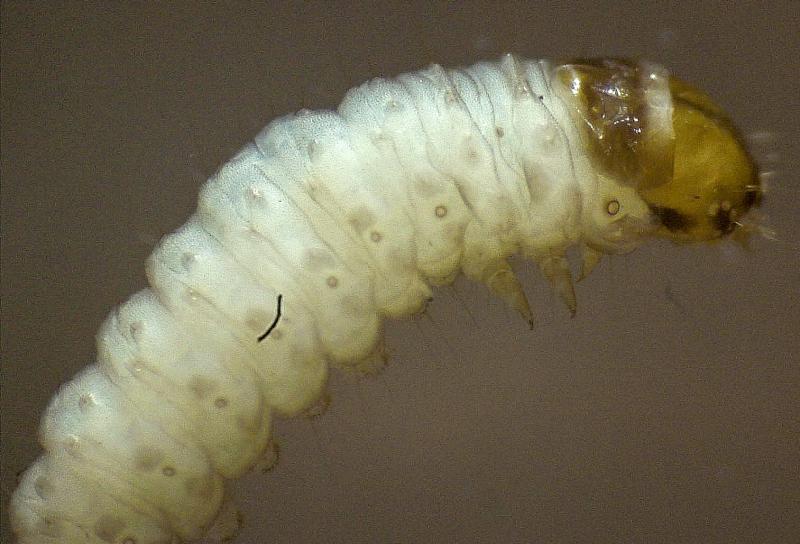CHARLOTTE, NC — U.S. Customs and Border Protection (CBP) Office of Field Operations agriculture specialists and members of our “Beagle Brigade” canine unit at Charlotte-Douglas International Airport teamed up to intercept multiple prohibited agricultural items and insects.

prohibited items at Charlotte airport
On March 25, CBP agriculture specialist and K9 Sheila alerted on a traveler’s checked bags that arrived from Syria. Discovered by CBP agriculture specialist during the inspection process was a collection of 22 types of seeds for planting, two live plants with soil, cactus, coriander, and wheat berries. The coriander, also known as cilantro and wheat berries contained insects.
“These items, whether in commercial cargo or with an individual entering the country, could cause serious damage to America's agricultural crops,” said Patricia Fitzpatrick, CBP Port Director for the Area Port of Charlotte. “CBP’s agriculture specialists and our K9 work side by side to detect and intercept prohibited food items, invasive weed seeds and insects, all which pose a significant threat to U.S. agricultural industries and our nation’s economy.”
CBP agriculture specialists on February 20, working with K9 Shelia, alerted to luggage belonging to a traveler who arrived on a flight from Ghana. CBP agriculture specialist discovered three different types of prohibited fruits, two species of peppers as well as a bag of nuts with husks were found during the inspection.

airport intercepted this larva
Due to the risks of pests and or disease, the fruits and nuts are prohibited. During the examination of the peppers for the presence of insects, a lepidopteran larva was discovered.
CBP destroyed all the prohibited items and the travelers were not penalized though warned about properly declaring of agriculture products to CBP.
Travelers can check the general admissibility of fruits and vegetables by consulting the Animal and Plant Health Inspection Service website or the Fruits and Vegetables Import Requirements database.
On a typical day in fiscal year 2017, CBP agriculture specialists discovered 352 pests at U.S. ports of entry and 4,638 materials for quarantine.

